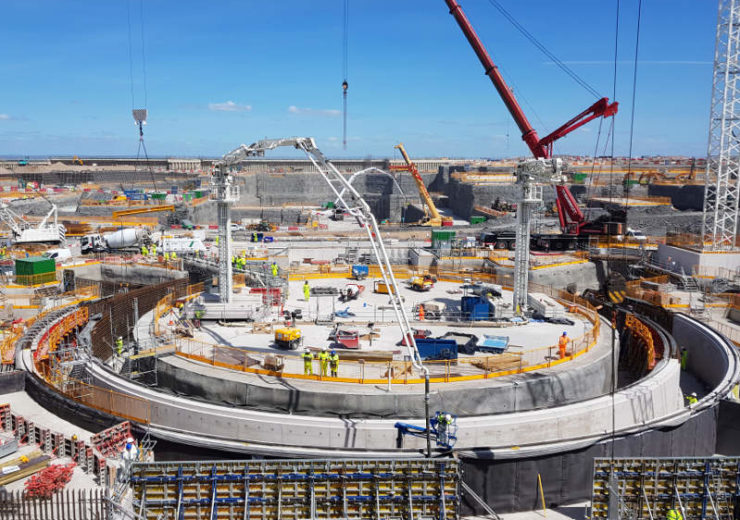Full-year profit growth for the French utilities giant were achieved despite declines in nuclear and hydropower output throughout 2019

EDF is developing the UK's Hinkley Point C nuclear power plant (Credit: EDF)
French utilities giant EDF reported growing profits in 2019, boosted largely by a strong performance in its renewables division and better pricing conditions.
Full-year earnings before interest, tax, depreciation and amortisation (EBITDA) rose more than 12% compared with 2018, to €16.7bn ($18.1bn) — while sales revenue was up 4% to €71.3bn ($77.3bn).
The energy firm said favourable pricing conditions in France and the UK contributed to the strong performance — earnings were at the top end of its target range — offsetting a decline in nuclear generation in both regions and “poor hydropower conditions” in its home nation.
EDF sets sights on further profits growth after 2019 showing
EDF chairman and CEO Jean-Bernard Lévy said: “The rebound first seen in 2018 was confirmed and enhanced by our performance in 2019. EDF is a profitable company, which has achieved its financial targets.
“The unwavering commitment of the group’s employees enabled us to further deploy our CAP 2030 strategy at a rapid pace, while making disciplined investments and reducing operational costs.
“We are forging ahead in all renewable energies, moving ahead with our commercial offensive in France and making strong progress with the implementation of our solar, electricity storage and electric mobility plans and we are investing in existing nuclear assets and projects.
“By capitalising on our expertise and our transformation capacity, we are determined to play a leading role to meet the French and European objective of becoming carbon neutral.”
Looking to the year ahead, the firm set an EBITDA target range of between €17.5bn ($19bn) and €18bn ($19.5bn).
Outages dampened nuclear power generation
EDF, which is majority-owned by the French government, operates a large nuclear fleet across France and in the UK, but a series of operational outages contributed to declining nuclear power output in both countries throughout the year.
In France, nuclear generation was down 13.7 terawatt-hours (TWh) compared to 2018, while in the UK it was down 8.1TWh — standing at 379.5TWh and 51Twh respectively.
The firm is also pursuing an aggressive renewables strategy, confirming yesterday the acquisition of UK electric vehicle (EV) charging firm Pod Point in a deal worth a reported €100m (108m) — which followed on from its purchase of grid-scale battery infrastructure specialist Pivot Power in 2019.
EDF’s UK CEO Simone Rossi said: “With the addition of charge points, we can help our customers reduce their carbon footprints and benefit from lower fuel costs by going electric.
“The additional electricity demand from EVs will require urgent investment in low-carbon generation from renewables and nuclear.”
Sales revenue from EDF’s renewables unit was up 2.9% year-on-year in 2019 to €1.5bn ($1.6bn), while EBITDA grew 33.5% in the year to €1.2bn ($1.2bn).
